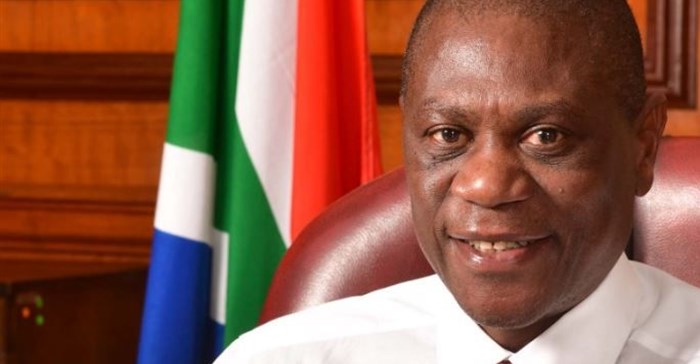
Related
Top stories

Marketing & MediaAds are coming to AI. Does that really have to be such a bad thing?
Ilayaraja Subramanian 2 hours





More news











ESG & Sustainability
Crisis for Deaf South Africans as video relay service provider faces closure







“We are concerned with HIV treatment gaps in children. Children living with HIV aged 15 years and below are left behind in the global HIV response when compared to the general population,” he said.
The country’s second-in-command was speaking at the official commemoration of World Aids Day as chairperson of the South African National Aids Council (Sanac) at the Mandeni Local Municipality in KwaZulu-Natal.
He described the day as an opportunity to strengthen unity to fight against HIV, support those living with HIV, and remember those who succumbed to Aids-related illnesses.
Globally, he said only 52% of children who are living with HIV are on lifesaving treatment, compared to 76% of the adult population.
According to the deputy president, this results in children accounting for 15% of Aids-related deaths on an annual basis despite that 4% of people living with HIV are children.
Meanwhile, he said stigma, discrimination, punitive laws and policies, violence, and gender inequalities in eastern and southern Africa remain some of the barriers that hinder access to treatment, care, and support for women, girls, and children.
“Unfortunately, South Africa has the largest population of children living with HIV in the world, and as of June 2023, our treatment coverage for children is alarmingly low, coming in at 67%.”
He said the data raises concerns and emphasises the urgent need for increased efforts and resources to guarantee that every child who is HIV-positive receives the care and treatment they require.
In response to this challenge, government is working with the Joint United Nations Programme on HIV and Aids (UNAids), by co-ordinating United Nations (UN) agencies including the United Nations Children's Fund (Unicef) and the World Health Organisation (WHO).
The other partners include the United States President’s Emergency Plan for Aids Relief (Pepfar) and the Global Fund, together with civil society, in establishing the Global Alliance to end Aids in Children by 2030.
“The proclamation was first made at the 24th International Aids Conference in Canada in 2022. South Africa was among the first 12 countries to join this alliance. As the South African government, we are determined to fulfil our commitment to end Aids in children,” he stressed.
This, according to the president, could be achieved by strengthening case finding among HIV-exposed infants and children and scaling up the initial HIV regimen to pregnant and breastfeeding women as per the revised clinical guidelines.
Meanwhile, government aims to also boost regular retesting of pregnant and breastfeeding women, increasing access to social protection programmes and addressing gender-based violence and femicide (GBVF), sexual assault, and abuse of infants, children, adolescents, and women.
Government will also work around the clock to scale up advocacy for the enforcement of laws and the administration of justice.
“Collectively, we should strive to ensure universal access to treatment, eliminate mother-to-child transmission, and confront prevailing prejudice and discrimination to foster a society that accepts and supports all individuals living with HIV, including our children.
“Together, we have the power to end the epidemic of HIV and Aids,” he added.